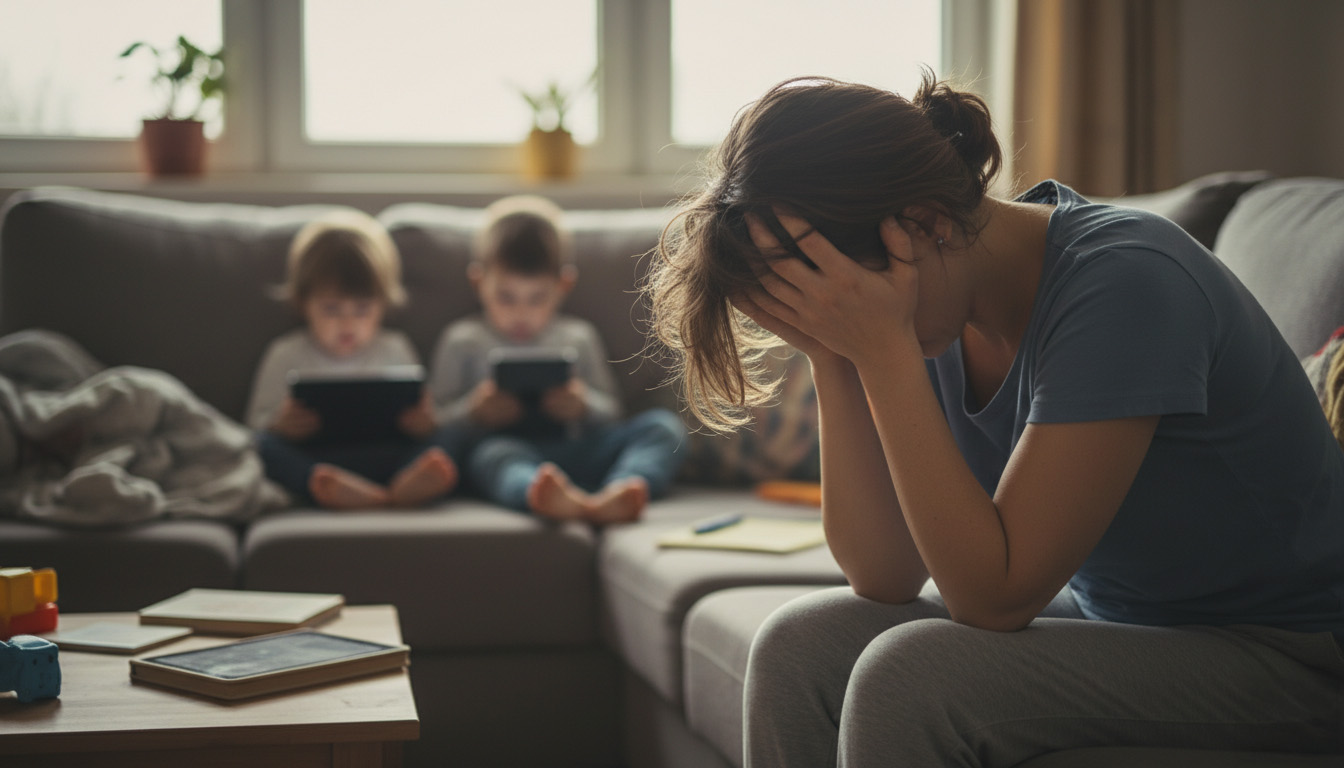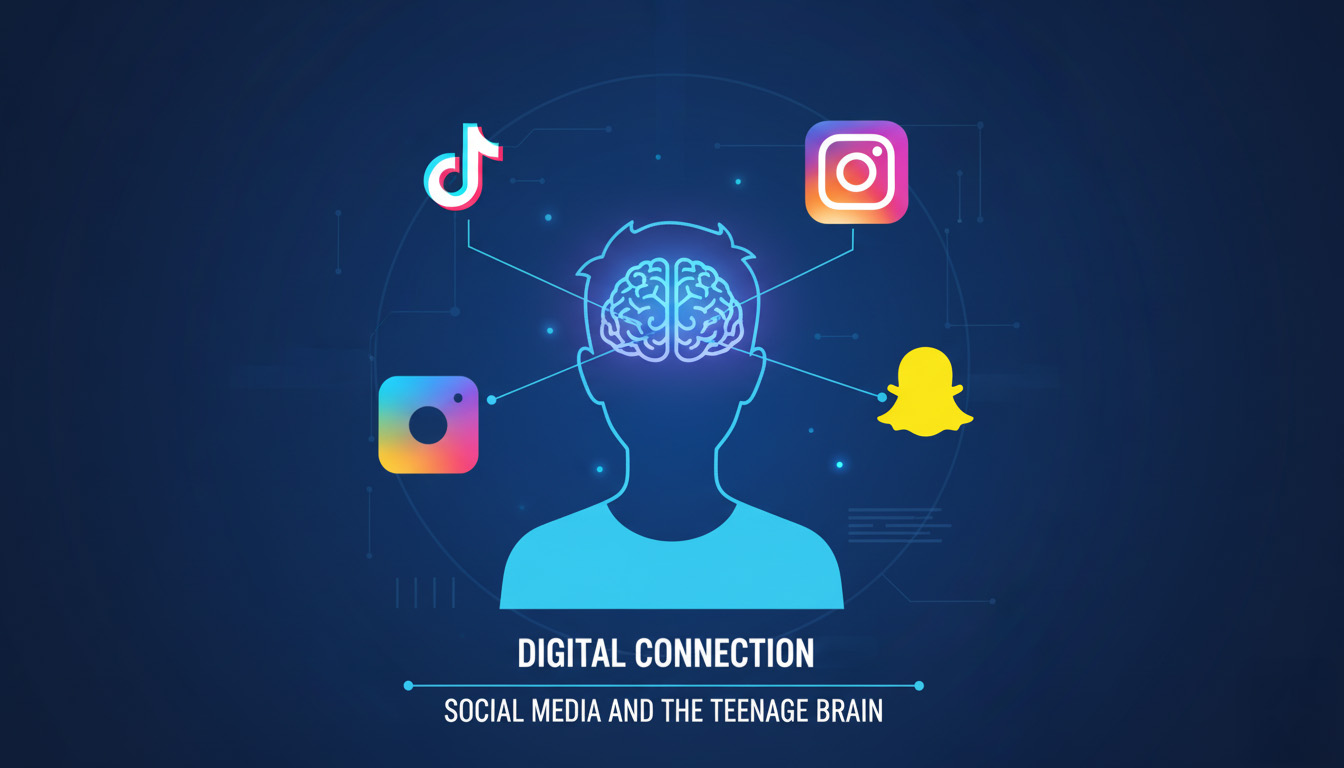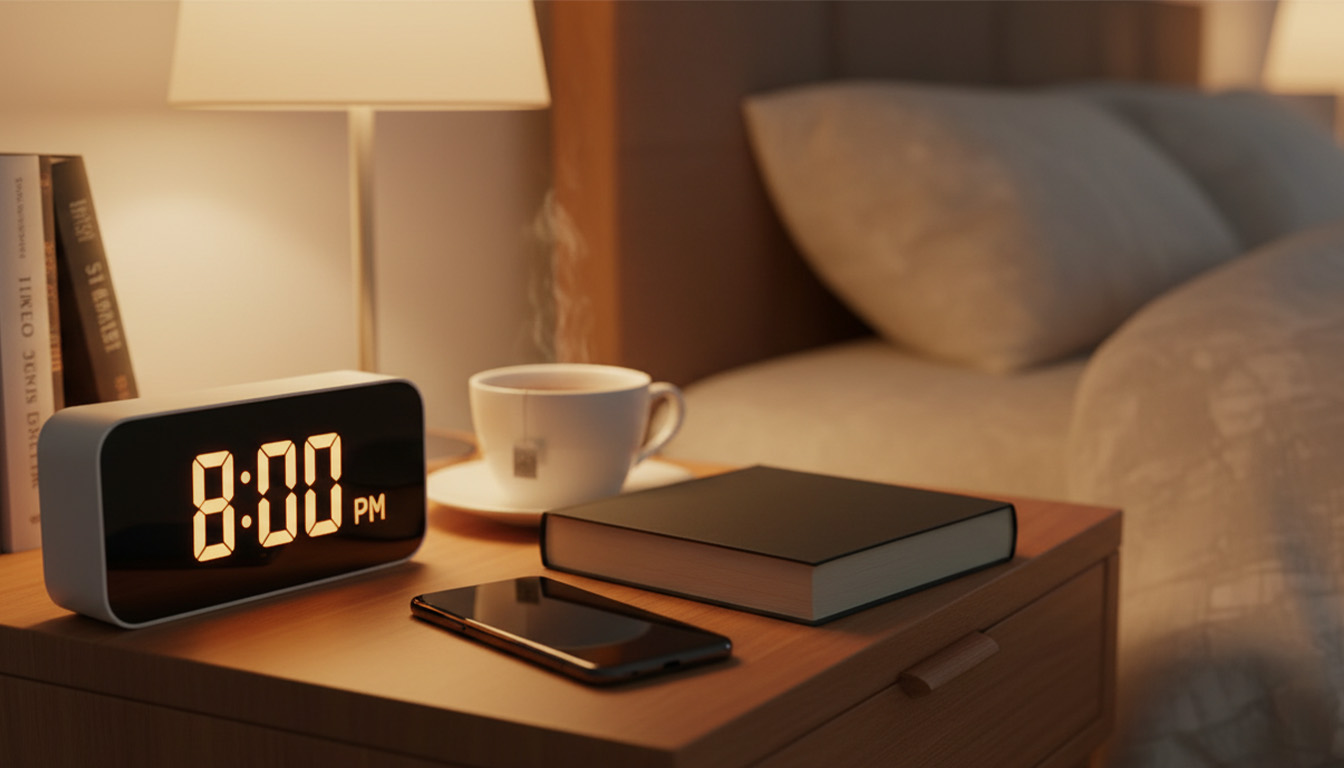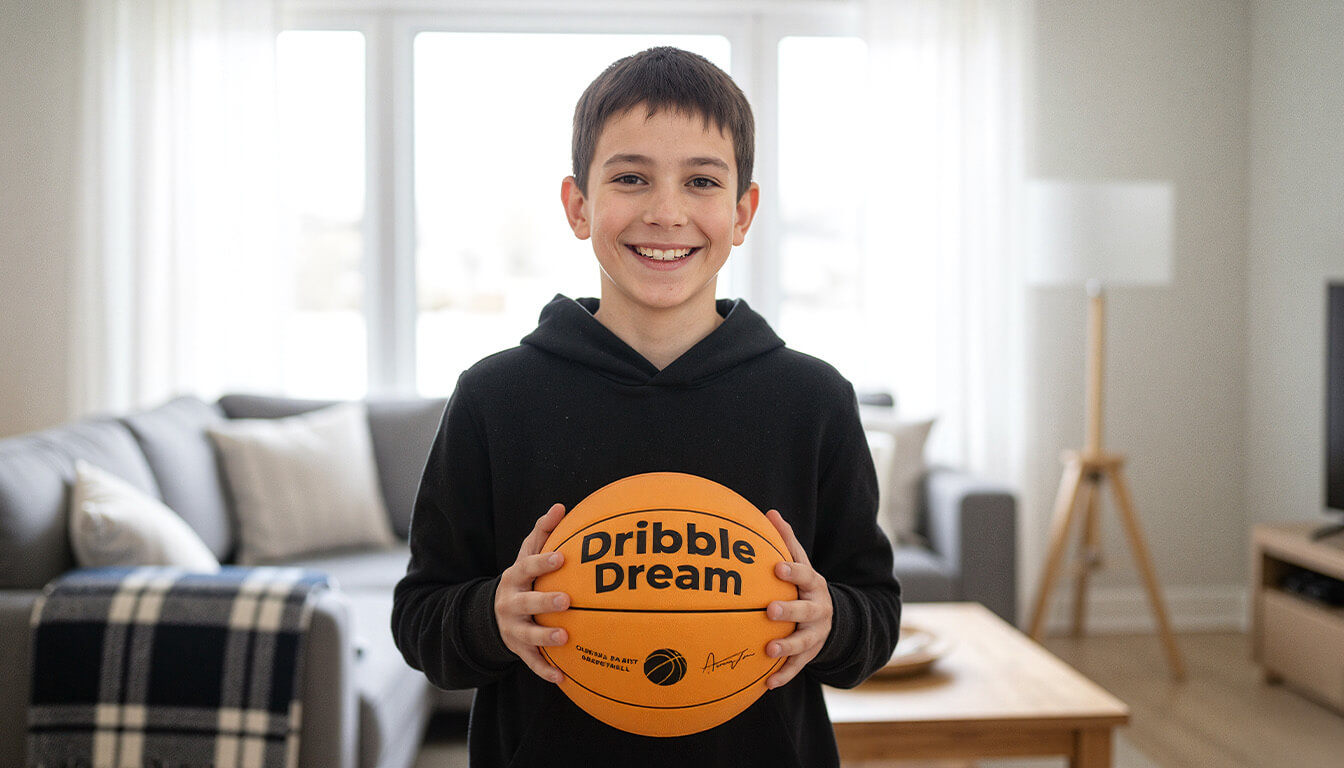5 Simple Ways to Reduce Kids' Screen Time (Ages 7-16)
November 6, 2025 at 10:12 AM EDT
Lisa Martinez, Mother, Brooklyn

Look, I'm not going to pretend I have all the answers.
I'm just a mom who spent way too many nights lying awake, wondering if I was completely screwing up my kids by letting them have "just five more minutes" on their tablets.
Again.
If you're reading this, you probably know exactly what I'm talking about. That guilt. That constant mental battle of "am I being too strict?" versus "oh my god, they've been on YouTube for THREE HOURS."
The good news? You're not alone. According to a 2025 Pew Research study, 86% of parents say managing screen time is a daily priority. And honestly? Most of us feel like we're failing at it.
But here's what I learned after months of research, failed attempts, and finally finding what actually works: You don't need to be perfect. You just need a plan.
So here are 5 strategies that actually helped us cut screen time without turning our house into a war zone.

Tip #1: Model What You Want to See (Yes, That Means YOU)
I know, I know. You don't want to hear this one.
But here's the brutal truth: A 2024 study found that the strongest predictor of a child's screen time is their parent's screen time.
Translation? If you're scrolling Instagram at the dinner table, your kid is going to think it's totally fine to watch TikTok during homework.
I had to face this one hard. I was constantly on my phone. Work emails, grocery orders, just "checking one thing." And then I wondered why my kids couldn't put their tablets down.
What actually worked:
I started putting my phone in a drawer during family time. Not on silent. Not face down on the table. Actually away.
At first, I felt twitchy. Like I was missing something important. (Spoiler: I wasn't.)
But within two weeks, my kids stopped asking for their devices as much during those times. Because they weren't watching ME use mine.
Kids learn what they see, not what we tell them.

Tip #2: Understand What Social Media Is REALLY Doing to Their Brain
This is the one that changed everything for me.
I thought screen time was just about "too much TV." I had no idea what was actually happening in my child's brain.
Then I started researching. And honestly, what I found terrified me.
The CDC's 2024 data shows that over 50% of American teenagers spend more than 4 hours daily on screens. And kids who use social media over 3 hours each day face double the risk of depression and anxiety symptoms.
Double.
These platforms aren't just "entertaining" our kids. They're literally designed by teams of psychologists to keep them hooked. Because that's how they make money. In 2022 alone, social media companies made $11 billion in ad revenue from kids under 18 in the U.S.
That's when I realized: I can't fight this with willpower alone. I need to understand what I'm up against.
Want to know the full truth about what social media is doing to our kids? I wrote an entire article breaking down the research and what finally worked for us.
Read: Why Social Media is Poisoning Our Kids (And What I Wish Someone Had Told Me Sooner)
Once you understand the actual danger, everything else makes more sense.

Tip #3: Create Phone-Free Zones (Not Just Times)
Here's what DOESN'T work: saying "no phones after 8pm" while everyone is scattered around the house.
Here's what DOES work: making specific places in your home completely device-free.
According to the American Academy of Pediatrics and Mayo Clinic research, families who create device-free zones see significantly better results than those who just set time limits.
Our three non-negotiable zones:
The Dinner Table: No phones. No tablets. No "just checking one thing." This was HARD at first, but now it's our favorite part of the day. We actually talk to each other.
Bedrooms: All devices charge in the kitchen overnight. A 2025 Lurie Children's study found that kids with devices in their bedrooms get significantly less sleep and show more behavioral problems.
The Car (for short trips): Instead of handing over a tablet the second we get in the car, we just… drive. And talk. Or listen to music. Or sit in silence. It's actually kind of nice.
The key is making these zones PHYSICAL. Not just a rule, but a place where devices literally aren't allowed.
It removes the negotiation. It removes the temptation.

Tip #4: Turn Off Screens 1 Hour Before Bed (And Stick To It)
I'm going to be honest. This was the rule I broke the most.
Because after a long day, it was SO EASY to just let them watch "one more episode" while I cleaned up or finished work or just sat down for five minutes.
But then I read the research. And it all made sense.
Screen time before bed doesn't just keep kids awake longer. It actively disrupts their sleep quality. The blue light messes with melatonin production, and the content keeps their brains overstimulated.
A study of over 10,000 14-year-olds found that greater social media use predicted poor sleep, online harassment, poor body image, and higher depression scores. And sleep was a major factor connecting all of it.
When kids don't sleep well, everything gets worse. Mood, focus, behavior, everything.
What we do instead:
One hour before bedtime, all screens go to the charging station in the kitchen. No exceptions.
Then we do a wind-down routine. Reading, talking about the day, maybe a board game if there's time.
I'm not going to lie and say my kids were thrilled about this. They weren't. But after about two weeks, they adjusted. And their sleep improved dramatically.
Which meant mornings got easier. Which meant school days got easier. Which meant LIFE got easier.
Worth it.

Tip #5: Give Them a Real Alternative They'll Actually WANT
Here's what I learned the hard way: You can't just take screens away. You have to replace them with something better.
I tried everything. "Go outside and play!" (It's raining. Or dark. Or cold.)
"Read a book!" (They'd rather stare at a wall.)
"Do your homework!" (Yeah, that really made screens less appealing.)
The problem wasn't that my kids were lazy or addicted. The problem was that nothing else felt as good as the dopamine hit from their devices.
Then I stumbled onto something that actually worked. Something my son CHOSE over his tablet. Without me forcing it. Without bribing. Without fighting.
Within a month, his screen time went from 5 hours a day to about 30 minutes.
No fights. No force. He just found something better.
And here's the crazy part: hundreds of other parents tried the same thing and got the same results.
It wasn't expensive. It wasn't complicated. It was almost too simple to believe.
But it worked. And it's still working.
Want to know exactly what we did? I wrote the whole story, including the research that explained WHY it worked and how other families are using it.
Read: "I'm Not a Psychologist. I'm Just a Mom Who Watched Her Son Become a Tablet Zombie."
The Bottom Line
Managing screen time isn't about being the perfect parent.
It's about being intentional. Consistent. And giving our kids something better than what screens offer.
You don't have to implement all five of these tips at once. Start with one. See what happens. Adjust.
The goal isn't perfection. The goal is progress.
And trust me, even small changes make a big difference.
Your kids might push back at first. That's normal. But they'll adjust. And in a few months, you'll look back and realize how much better things are.
You've got this, mama.
.png)